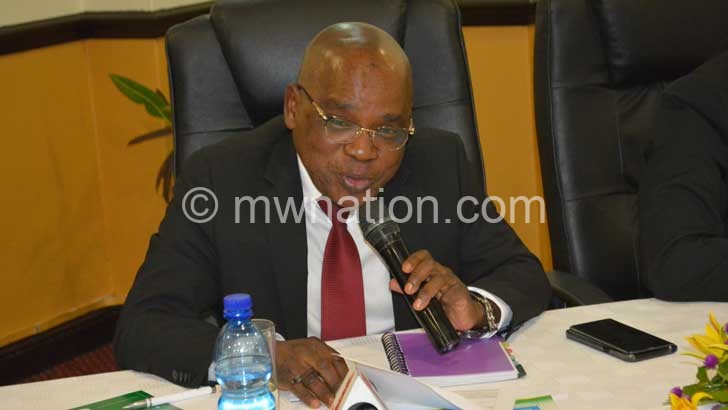Electricity Supply Corporation of Malawi (Escom) has insisted on quality as a pre-requisite for selecting electricity pole suppliers, saying local suppliers will have to sign a contract to replace any poles that rot before 10 years after installation.
This follows complaints by Raiply Malawi Limited that Escom stopped buying its poles in 2016, claiming that they do not meeting required standards. Raiply has since said such conditions must apply to all companies.
Speaking in an interview on Friday when Minister of Energy Newton Kambala toured Raiply, Escom chief executive officer Alexion Chiwaya said they will be working together with the company to have better products.

He claimed the poles Raiply supplied for the Malawi Rural Electrification Programme (Marep) rotted after two or three years, which was a loss; hence, the need to work together with the company on specifications.
According to Chiwaya, long-lasting poles ensure less power outages while those that break lead to customer dissatisfaction and loss of revenue.
Said Chiwaya: “What we will do is to sign a contract agreement, so that if a pole breaks, say in five years, they will come and replace it at their own cost. To us, it’s about the quality. We want a pole that will last for about 10 to 15 years. We want to work with Raiply, so that we can have the quality that we need, by sharing information. Once we certify the poles, other countries may start buying from us.”
Currently, Escom is receiving bids from companies for several wood products that include poles, up to September 3, and Chiwaya is hopeful that Raiply will submit a bid.
In an interview, Raiply spokesperson Dalitso Chimwala insisted that the company produces high standard poles and that a standard test conducted during the tour confirmed that their poles did not have problems.
He said: “We are grateful that the minister and the officials came and we have shown them how we produce these poles, including tests. We do everything according to specifications.
“On the contract agreement, I hope those conditions apply to all other suppliers because it should not just be Raiply.”
Chimwala insisted that their poles meet the required standards, challenging those in doubt to visit the company and conduct independent tests.
On his part, Kambala said he visited the company after receiving reports that Escom was not buying electricity poles from Raiply, but was importing from South Africa, Zimbabwe and Tanzania.
“We wanted to see how Raiply products can meet the specifications of Escom so that we start buying from them again. We knew that by coming here, we would have information on where we go wrong, or where they go wrong.
“We have a pool of engineers in Escom and they need to share information with Raiply on the challenges they face with these poles, and the company has also to come forward and accept their weaknesses as a supplier,” he said.
The Nation first reported in 2015 that Escom imported wood poles from Zimbabwe, sidelining local manufacturers who instisted they had the capacity to supply the commodity.
Raiply claims to have been sidestepped on a K2.5 billion deal opportunity in 2018.
Presently, the timber products producer has an idle stock of wood poles at its warehouse in Mzimba worth K800 million, a loss they claim could have been avoided if Escom had the welfare of local producers at heart.
Source: The Nation_August 24, 2020_by Joseph Mwale
